Drug and Alcohol Rehab in Crawley
Drug and alcohol abuse is something that tens of thousands of people across the UK struggle with every day.
As time passes and addiction becomes dependence, this only gets harder.
However, thanks to the hard work of addiction experts, getting help is now easier than ever.
If you’re living in Crawley and need help today, Rehab Recovery is here for you.
Start your recovery journey at a drug and alcohol rehab centre in Crawley by calling us today on 0800 088 66 86
Addiction Statistics In Crawley

Like many areas of the UK, Crawley is currently experiencing a cut to government-funded addiction treatment services.
This means that many drug-related deaths could be avoided if residents were offered the right forms of care.
In 2020, the crime rate in Crawley increased from the previous year to 87 crimes per 1,000 people.
This steady rise could only increase in 2021, meaning many inhabitants of Crawley could find themselves in danger with 71 drug-related police reports also filed in the same year.
If you are looking for alcohol or drug addiction treatment at a drug and alcohol rehabilitation in Crawley, it is never too late to seek help from a professional and bespoke service.
From there, we can begin to tailor a treatment programme directly to your needs and help you enter lasting sobriety.
Get the help you need from a drug and alcohol rehab in Crawley by giving our team a call on 0800 088 66 86
The Disease Model Of Addiction

The disease model of addiction refers to drug and alcohol addiction as a chronic disease.
By doing so it challenges the stigma of addiction by suggesting that those who are struggling are not struggling by choice or due to poor morals.
It is used to explain the causes of addiction.
This model also suggests that genetic, environmental, neurological and biological sources have a role to play in a person’s likelihood of developing an addiction.
For example, a lack of caregiver presence in childhood or early exposure to illicit substances can be valid reasons to why some people are more likely to develop a drug addiction in adulthood.
Whilst the disease model of addiction is adopted by many professionals, it is also criticised for contributing to the stigma surrounding addiction as it refers to those with addictions as addicts.
These labels can often be very harmful and contribute to the idea that those with addiction are inherently flawed and unable to ever change.
You can read more about the disease of addiction here.
To learn more about how the disease model of addiction may be used to inform effective addiction treatment services in Crawley, give our team a call today on 0800 088 66 86
Dual Diagnosis At Drug And Alcohol Rehab In Crawley

A dual diagnosis is given to those who display signs of both a substance use disorder and a co-occurring mental health disorder.
These most commonly include:
- Anxiety disorder
- Schizophrenia
- Depression
- Post-Traumatic Stress Disorder
- Borderline Personality disorder
- Bipolar disorder
A dual diagnosis is very common as those who use drugs and alcohol tend to do so to cope with mental health problems.
Self-medicating can cause existing mental health disorders to become aggravated or undiagnosed disorders to surface.
If a substance use disorder and mental health disorder are left untreated, your health will be placed in extreme danger.
Luckily, at Rehab Recovery we work with treatment providers who offer dual diagnosis treatment and can help you receive a personalised programme to help you.
We believe in offering treatment for every aspect of your illness, not just one part.
Through psychological and physical assessments, your chosen clinic can begin to offer you a tailored plan to treat your addiction.
Learn how a drug and alcohol rehab in Crawley will work to support your mental health by giving our team a call on 0800 088 66 86
The Importance Of Abstinence In Recovery
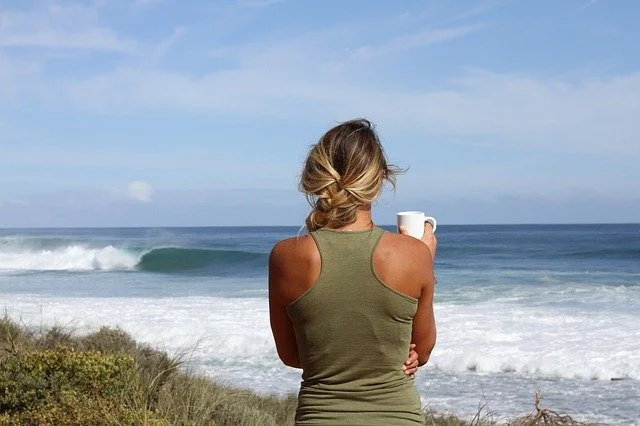
Admitting that you have a problem with drugs or alcohol is never easy.
You may believe that your consumption is normal, especially if those around you also partake in continued substance use.
Once you decide to enter rehab in Crawley, you will be required to abstain from all consumption.
Most rehab clinics abide by the abstinence approach wherever it can be followed.
This means that during your time in treatment and for the rest of your sobriety you will be expected to avoid all consumption of drugs or alcohol.
Some clinics and addiction experts also believe in the moderation approach, which can be helpful to those with extreme heroin addictions.
Usually, in these cases, methadone and other medications are prescribed to help if complete cessation cannot be reached.
During your phone call and following assessment, staff will work with you to determine the severity of your addiction and how you can reach abstinence.
Most clients usually reach abstinence through a combination of detoxing and therapy.
Most experts have agreed that abstinence is always the safer and more effective route to addiction recovery.
Abstinence can help you to maintain all the skills learnt in rehab and minimises the risk of relapsing once treatment is complete.
Achieve abstinence at a drug and alcohol rehab in Crawley by giving our team a call on 0800 088 66 86
The Differences Between Private And Council-Funded Rehab In Crawley

Addiction is not considered a ‘choice’ or ‘moral failing’ on behalf of the addiction sufferer – rehab is always about treating the disease of addiction.
Whilst the benefits of private rehab are many, you may be wondering where that leaves NHS treatment offered by the government, particularly since this is many people’s first port of call.
Whilst NHS treatment is free, many programmes are being cut due to a lack of funding, leaving those who require treatment with nowhere left to turn.
A lack of programmes thus means that waiting lists in other areas are overwhelmed and the patient-to-staff ratio is very large.
Many NHS addiction programmes are also criticised for their lack of mental health support which, meaning that those with a dual diagnosis cannot access adequate care and support.
On the other hand, the major downside to private rehab in Crawley is the cost involved.
Whilst this was a huge issue many years ago, policies have changes recently and treatment is considered far more accessible.
Many private treatment providers now offer payment plans and accept medical insurance.
Others work directly with clients to offer programmes within their budgets.
For help choosing between private and NHS rehab in Crawley, give our expert team a call today on 0800 088 66 86
Who Is Residential Rehab In Crawley Suitable For?
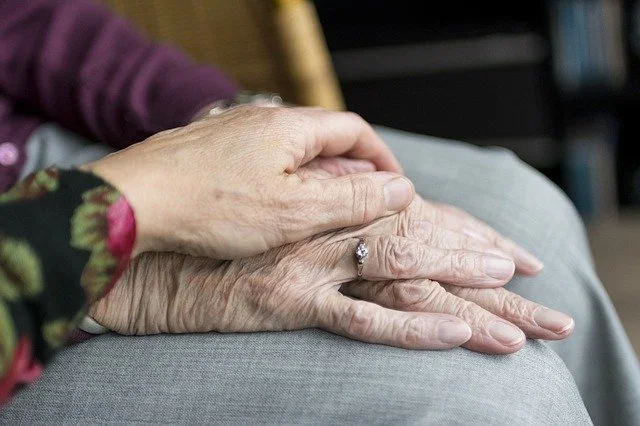
Sadly, residential rehab isn’t for everyone.
Whether it’s the cost or commitment involved, you may find yourself unable to determine if you would benefit from investing in residential rehab.
Take a look at the list below for who we believe residential treatment is best for:
- Those who drink 25 or more units of alcohol a day and who also struggle with co-occurring mental health problems.
- Those with poor mental health who would struggle to complete outpatient treatment or a home detox.
- Those who have attempted outpatient treatment in the past but have been unable to complete it.
- Those who live with an abusive partner or someone else who also consumes drugs or alcohol.
- Those who become violent and angry when intoxicated and lash out at loved ones.
- Those who experience delirium tremens or alcohol-related seizures.
- Those who have previously been diagnosed with Wernicke’s Encephalopathy or who suffer from Delirium Tremens.
- Those who are identified as high-risk under the DSM-5 criteria.
Get the help you need from a drug and alcohol rehab in Crawley by giving our team a call on 0800 088 66 86
What Is DSM-5?

The DSM-5 (Diagnostic and Statistical Manual of Mental Disorders) is the classification of mental disorders used worldwide by mental health professionals and in addiction treatment to diagnose substance use disorders.
The DSM-5 includes 11 criteria that patients must partly or fully identify with in order to be diagnosed with a substance use disorder.
The criteria are as follows:
- Taking the substance in larger amounts or for longer than you’re meant to.
- Wanting to cut down or stop using the substance but not managing to.
- Spending a lot of time getting, using, or recovering from use of the substance.
- Cravings and urges to use the substance.
- Not managing to do what you should at work, home, or school because of substance use.
- Continuing to use, even when it causes problems in relationships.
- Giving up important social, occupational, or recreational activities because of substance use.
- Using substances again and again, even when it puts you in danger.
- Continuing to use, even when you know you have a physical or psychological problem that could have been caused or made worse by the substance.
- Needing more of the substance to get the effect you want (tolerance).
- Development of withdrawal symptoms, which can be relieved by taking more of the substance.
Those who identify with 2 to 3 of the criteria are likely to be diagnosed with a mild substance use disorder, those who identify with 4 to 5 a moderate substance use disorder, whilst identification with 6 or more of the above criteria typically shows that a severe substance use disorder is present.
The DSM-5 uses these three levels of severity for practitioners to be able to correctly diagnose patients with substance use disorder.
Find out what manner of treatnent you need from a drug and alcohol rehab in Crawley by calling us on 0800 088 66 86
Alternatives To Residential Rehab In Crawley
Professionally supported drug and alcohol rehab is one of the best ways to recover from addiction, but it isn’t for everyone.
If you think that you wouldn’t benefit from a residential rehab clinic, why not take a look at your other options?
In the Crawley area, there are lots of alternatives to drug and alcohol rehab:
- Self-Management and Recovery Training (SMART Recovery): This is a non-profit organisation that provides assistance and motivation to those wanting to abstain from addiction and enter sobriety.
- Alcoholics Anonymous and Narcotics Anonymous: These are usually held weekly and provide support to those facing addiction by offering group sessions with local peers who are also facing similar situations.
- Al-Anon Family Meetings: These are also offered as weekly meetings but are for families affected by addiction. They are a safe space for families to talk and share stories.
- Home Detoxes: These are a cheaper alternative to residential treatment though it is important to note that triggers and associations are harder to overcome therefore this method is only recommended for those with mild addictions.
Whether you need the help of a conventional drug and alcohol rehab in Crawley, or one of these excellent alternative services, start your journey today by calling us on 0800 088 66 86
The Admissions Process At A Drug And Alcohol Rehab In Crawley?
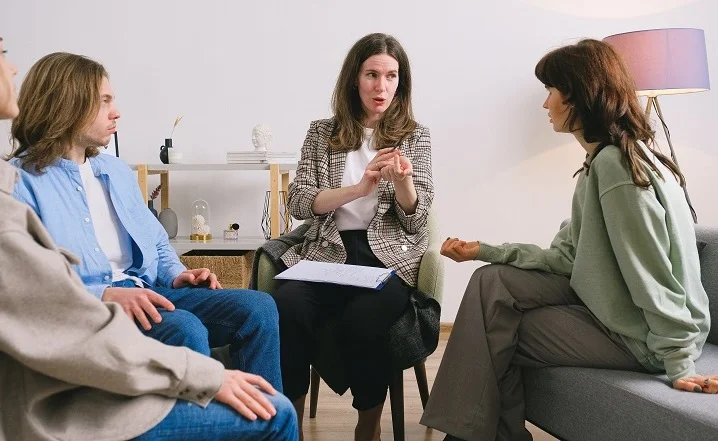
If you are ready to receive professional and bespoke treatment, contact Rehab Recovery on 0800 088 66 86.
By speaking to one of our team members, we can begin to help you kickstart your recovery journey and enter a residential facility as soon as possible.
Once you have selected the right clinic, staff will arrange an admission date and upon this date will carry out assessments to determine what kind of treatment you require.
These assessments usually involve criteria such as the DSM-5, ASAM, and AUDIT.
ASAM

The ASAM criteria are used globally to effectively place, transfer, and discharge patients within treatment facilities.
It follows 6 dimensions that help practitioners to carry out their assessments with accuracy.
The 6 dimensions are:
Dimension 1: Acute Intoxication and Withdrawal Potential
The first dimension explores the client’s past and their experiences with substance use. It also includes experiences with withdrawal.
Dimension 2: Biomedical Conditions and Complications
The second dimension explores the client’s health history as well as their current mental and physical condition.
Dimension 3: Emotional, Behavioural, or Cognitive Conditions and Complications
The third dimension explores the client’s thoughts, mental health, and emotions they are feeling.
Dimension 4: Readiness to Change
This fourth dimension determines the client’s readiness and interest in changing behaviours.
Dimension 5: Relapse, Continued Use, or Continued Problem Potential
The fifth dimension explores the client’s relationship with relapsing and continued use of substances.
Dimension 6: Recovery/Living Environment
The sixth, and final, dimension explores the client’s recovery and living situation. It also includes exploration of things such as social groups, friends, support networks etc.
AUDIT

AUDIT stands for Alcohol Use Disorder Identification Test. It is used to diagnose alcohol use disorder through a series of 10 questions.
These questions determine the severity of alcohol consumption by focusing on intake, dependency and the consequences of consumption.
Each question of the AUDIT is scored out of 4 with the total test scored out of 40.
The higher an individual scores on the AUDIT, the more severe their alcohol consumption is.
Those who score 16 or higher are urged to seek professional help.
The questions of the AUDIT are:
- How often do you have a drink containing alcohol?
- How many units of alcohol do you drink on a typical day when you are drinking?
- How often have you had 6 or more units if female or 8 or more if male on a single occasion in the last year?
- How often during the last year have you found that you were not able to stop drinking once you had started?
- How often during the last year have you failed to do what was normally expected from you because of your drinking?
- How often during the last year have you needed an alcoholic drink in the morning to get yourself going after a heavy drinking session?
- How often during the last year have you had a feeling of guilt or remorse after drinking?
- How often during the last year have you been unable to remember what happened the night before because you had been drinking?
- Have you or somebody else been injured as a result of your drinking?
- Has a relative, friend, doctor or other health worker been concerned about your drinking or suggested that you cut down?
Start the admissions process at a drug and alcohol rehab in Crawley by giving our team a call today on 0800 088 66 86
What Is A Professional Intervention?

Interventions are facilitated conversations that can be extremely effective for those who are unable to see the full effects of their substance addiction.
They are typically held by family and friends via the help of a professional interventionist.
By reaching out to Rehab Recovery, we can help to place you in contact with an interventionist.
Whilst an intervention may seem intimidating or risky to hold, it can help your loved one to see the support available around them.
A professional interventionist can help to provide guidance and assistance to you and your family during this difficult time.
The power of an intervention can be all it takes for your addicted loved one to seek help from drug and alcohol rehab in Crawley.
Before the intervention takes place, you will be asked to meet up with your chosen interventionist to discuss how you will show support and compassion during the gathering.
They may also ask about certain techniques and approaches you can try to get your loved one to see the extent of their problem.
Make sure that your loved one gets the help they need from a drug and alcohol rehab in Crawley by calling us on 0800 088 66 86
CRAFT

Approaches such as CRAFT are often recommended.
CRAFT stands for Community Reinforcement And Family Training.
This method can be an alternative approach to intervention if you and your interventionist believe that a traditional intervention is unlikely to work.
CRAFT was designed to help family members steer their loved one away from further substance abuse.
The CRAFT method focuses on families rewarding their loved ones with positive reinforcement when they choose to abstain from consumption.
This method is very effective in facilitating change and also helps families to keep their mental health and well-being a top priority.
Learn more about CRAFT and how it can help to convince your loved one to attend a drug and alcohol rehab in Crawley by calling us on 0800 088 66 86
How Much Does Alcohol And Drug Rehab Cost In Crawley?

The price of rehab varies for each individual.
Below we have compiled a general estimate for the cost of a variety of treatments and programmes.
A 10-day detox in a single occupancy room begins from around £6,000 and can increase to around £10,000.
If you are looking to share a multi-occupancy room, prices range from around £2,000 to £4,000.
If you would prefer to complete a comprehensive 28-day stay, prices begin at around £8,000 and can escalate to £12,000 for a single occupancy room.
If you are worried about the financial aspect of rehab or perhaps have other commitments, and assuming you meet the criteria, a home detox is likely to be recommended by our team.
These are a cheaper option and begin priced at around £1,500.
Find out how much your stay at a drug and alcohol rehab in Crawley is likely to cost by giving our team a call on 0800 088 66 86
How Do I Choose The Right Alcohol And Drug Rehab In Crawley?
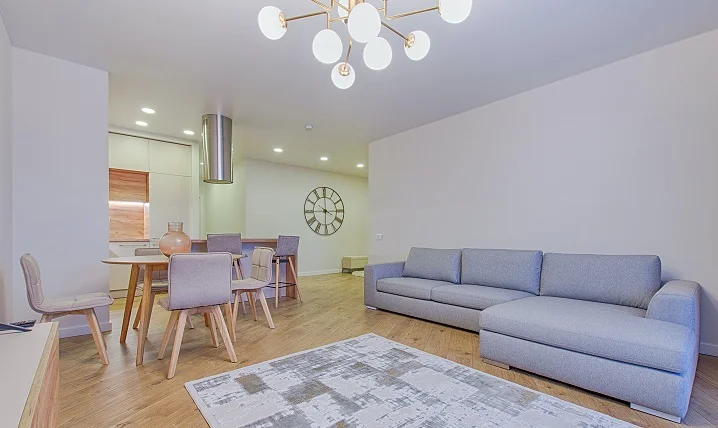
There are many types of rehab across the UK.
This may mean you feel overwhelmed with your choices and are unsure which type of facility you should choose.
Below we have created a rehab checklist to assist you in your decision.
- Choose a facility with a history of great results and a long track record.
- Choose a facility with good reviews from past patients and staff.
- Choose a facility that caters to your budget.
- Choose a facility that you can go and visit in person before committing.
- Choose a facility with well-experienced and qualified staff.
Make sure that you end up at the perfect alcohol and drug rehab in Crawley by caling us today on 0800 088 66 86
What Is A Detox? Will I Have To Complete One?

A detox is a medical programme designed to help individuals who are dependent on drugs and alcohol.
It is typically the first step in a rehab programme and can help to end all physical dependencies before you move onto therapy and addiction counselling.
A detox is a safe and monitored programme that helps to remove all toxins from the body.
By opting to complete this programme in a rehab facility, you are placing yourself first.
With support on hand 24/7, a medically assisted alcohol or drug detox is the safest route to sobriety.
Whether or not you will be required to complete a detox programme depends on the severity of your addiction and the substance you are addicted to.
Alcohol And Heroin Detox
Regular abuse of alcohol or heroin creates strong physical dependencies that ultimately mean a detox programme will be required to be completed.
Ending your consumption suddenly can cause the body to go into shock and display dangerous withdrawal symptoms.
Detoxes usually last around 7-10 days, but again, this depends on your addiction and the type of programme you are completing.
Both alcohol detox and heroin detox will involve the use of prescription drugs to minimise these drug and alcohol withdrawal symptoms and make detox safer.
Home detoxes are also another option and can help to save you money, though they are only recommended for those with mild dependencies as they can be dangerous to complete otherwise.
During a home alcohol detox, Librium -the brand name for chlordiazepoxide- is posted to your address to help you overcome alcohol withdrawal symptoms.
You are also expected to check in with clinic staff every day via a phone call.
Whilst detoxes can be completed as a singular programme, many clients choose to stay in rehab for a further 3 weeks to overcome psychological dependencies and cravings as well as to create relapse prevention plans.
Make sure that your detox is safe and effective with the help of a rehab centre in Crawley – call our team today on 0800 088 66 86
How Long Does Rehab Last?

Most individuals complete a month-long rehab stay.
This is deemed the most appropriate time for old habits to be overcome by far healthier coping mechanisms.
Others choose to enter rehab for around 3 months, this is usually recommended for those with severe addictions.
Some programmes, such as a single detox programme, can last between 7 to 10 days.
The length of your rehab programme will be determined by the severity of your addiction and the substance you are addicted to.
Substances that cause physical and psychological dependencies –alcohol, opioids, prescription drugs, etc.- require a drug detox programme followed by therapy to overcome the emotional causes of addiction and associated triggers.
To find out how long your stay at a drug and alcohol rehab in Crawley is likely to last, give our team a call on 0800 088 66 86
Cocaine Rehab In Crawley

Cocaine is a very powerful stimulant most commonly snorted through the nose or injected with water.
It produces a euphoric effect in users and can trigger psychological dependencies quickly after consuming only a few times.
Most people who consume cocaine or crack cocaine build up a strong tolerance and become addicted by trying to recreate their first-time experience.
Cocaine is a very dangerous drug and cocaine addiction can cause a wide range of physical and mental problems.
Treatment will focus solely on breaking the patient’s psychological addiction to cocaine, as a cocaine detox will not be necessary.
Overcome your cocaine addiction with the help of a drug and alcohol rehab in Crawley – call our team today on 0800 088 66 86
Heroin Rehab In Crawley
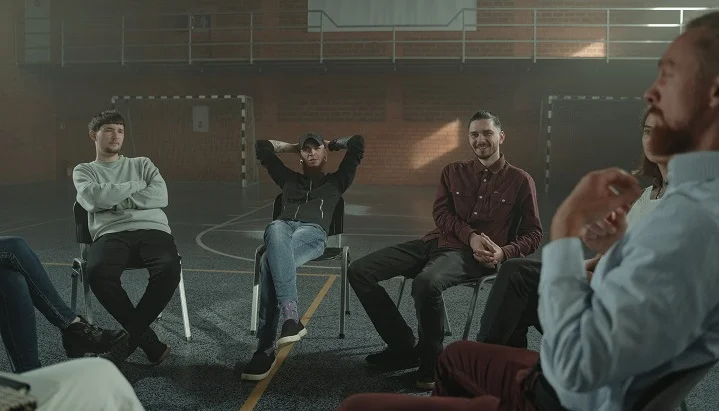
Heroin is a very addictive drug and can cause irreversible changes to the body and brain.
The best way of overcoming any opiate addiction is to enter a heroin rehab.
Leaving a heroin addiction untreated can lead to a quick deterioration in your health and even death.
Many clients are offered inpatient treatment and methadone as a prescription drug substitute for heroin.
For those with severe addictions, methadone can be lifesaving and help make a heroin detox so much more effective.
Many heroin rehab clinics in the UK are residential, meaning you can benefit from around-the-clock care.
Overcome your heroin addiction with the help of a drug and alcohol rehab in Crawley – call our team today on 0800 088 66 86
Cannabis Rehab In Crawley

When someone uses cannabis for the first time, the brain begins to produce high amounts of dopamine.
Dopamine is a chemical that makes us feel happy and positive.
This is a synthetic change in the brain that cannabis rehab can help you to overcome.
When consumption of cannabis is stopped and dopamine is no longer produced, the user feels lethargic and depressed.
Wanting to consume cannabis over and over again shows a dependency is formed.
Whilst some people think cannabis addiction is mythical, they certainly do exist and can be very damaging to an individual’s life.
As cannabis isn’t a physically dependent substance, it doesn’t require a cannabis detox.
Instead, clients are supported through a variety of therapies to help prevent any further substance abuse in the future.
Overcome your cannabis addiction with the help of a drug and alcohol rehab in Crawley – call our team today on 0800 088 66 86
What Therapies Are Available At A Drug And Alcohol Rehab In Crawley?

A combination of both traditional and holistic therapy is offered at rehab to help individuals overcome the emotional and underlying mental causes of addiction.
As mentioned above, a major benefit to private treatment is the variety of high-quality treatment options available.
Examples of the therapies on offer include:
- Cognitive Behavioural Therapy (CBT)
- Dialectical Behavioural Therapy (DBT)
- Equine Therapy
- Motivational Interviewing
- Motivational Enhancement Therapy
- Alternative and Holistic Therapy (Art therapy, music therapy, mindfulness, meditation, yoga, acupuncture, nutritional counselling etc.)
- Contingency Management
- Group Therapy
- Individual Therapy
- Family Therapy
- 12-Step Facilitation Therapy
Experience any and all of these effective therapies at a drug and alcohol rehab in Crawley by giving our admissions team a call on 0800 088 66 86
The Importance Of A Relapse Prevention Plan
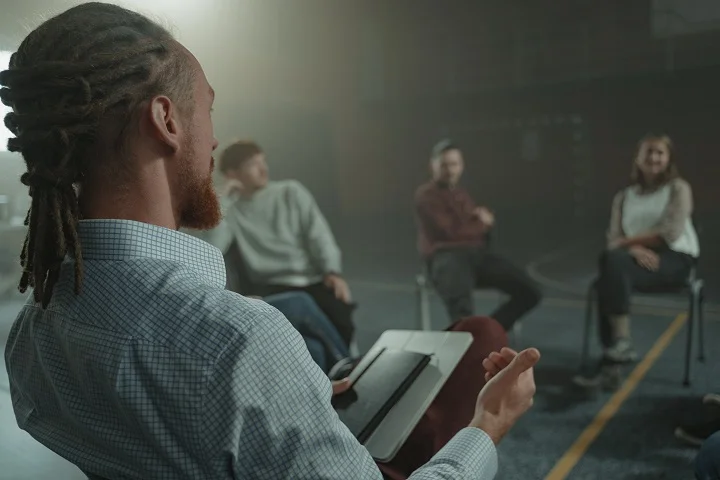
Towards the end of your treatment programme at rehab centres in Crawley, staff will work with you to formulate a relapse prevention plan.
This plan details your triggers and associations as well as your coping mechanisms.
Your relapse prevention plan is shared with your support network and clinic.
It is a document to help you during the first year of your sobriety and can help you to avoid damaging situations.
HALT
Staff will recommend certain techniques such as HALT.
HALT stands for Hungry, Angry, Lonely, Tired and is used to remind individuals to check in with their needs.
Whilst engaging in addictive behaviour may feel tempting, understanding your needs or looking at which ones are not being met can help you to avoid relapsing.
Aftercare
Upon the completion of your programme, aftercare is offered for up to 12 months.
Aftercare can help you to maintain your sobriety and is offered through weekly sessions and meetings with your clinic.
Staff can monitor your progress and offer support when it is needed.
Make sure that your stay at a drug and alcohol rehab in Crawley is matched by an equally effective aftercare plan by calling us today on 0800 088 66 86
Contacting Rehab Recovery

For more information on detox and rehab options in Crawley, contact Rehab Recovery today on 0800 088 66 86.
When you contact us, we shall outline a variety of treatment options that are available to you in Crawley.
This includes both private and statutory alcohol or drug addiction treatment services.
When you take the first step and reach out for help, you’re making the choice to lead a better life.



